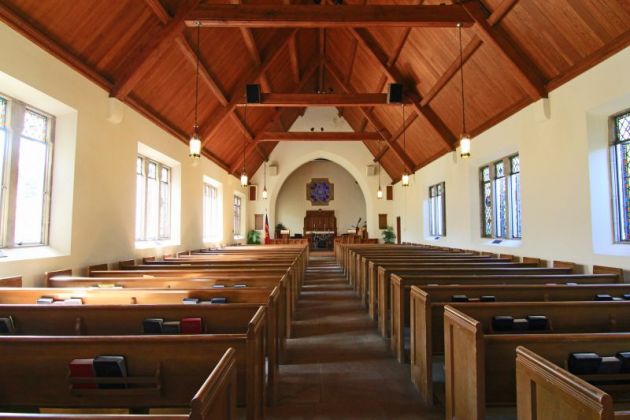Evangelical church attendance, giving significantly hit by pandemic, UK study finds

Most UK evangelical churches have returned to weekly in-person services, but not everyone has returned in person, and attendance patterns have changed since before the COVID-19 pandemic with less frequent visits and less giving, new research has found.
The Evangelical Alliance's third survey of the UK church during the pandemic indicated that the pandemic impacts people's habits concerning church attendance.
"Yet despite these fluctuations, churches continue to share the good news of Jesus and serve their local communities," says Peter Lynas, UK Director of the alliance in the study launched Nov. 26.
Most churches, or 95 percent, are back to in-person services, and 61 percent continue to offer online services.
Average in-person attendance at church services has dropped by 32 percent, says the research.
It attributes this mainly to people attending less regularly and is potentially offset by a rise in people attending online.
Almost 60 percent of church leaders have noticed a falloff in volunteering, and 24 percent of churches who offered youth ministry before the pandemic are not currently offering youth ministry, Christian Today reported.
DOWNWARD TREND IN GIVING
"There seems to be a downward trend in relation to congregational giving, despite a noticeable disconnect between church leaders and church members' responses about giving," said the survey.
Asked to estimate the typical number of people at a church service in person before the coronavirus and over the last month, church leaders reported an average of 124 in attendance pre-pandemic, falling to 85 by autumn 2021.
Individual respondents reported similarly about their own church attendance, with 92 percent saying they had attended church services in-person each week before the pandemic, but only 68 percent saying they do so now.
The finding contrasted a 16 percent increase in fortnightly and monthly in-person church attendance.
While weekly online attendance has not significantly changed since before the pandemic (24 percent before against 23 percent now), there has been a significant increase (19 percent) in online attendance among those who continue to attend on a fortnightly or monthly basis.
The survey was open between Oct. 14 and 24, and people self-selected to take part in the survey.
Therefore, the results cannot be assumed to be representative of the UK church, says Lynas.
LARGE NUMBER OF RESPONDENTS
He says, however, that a large number of respondents, the even spread of responses from throughout the UK and across different denominations.
And the quality and variety of answers to the open questions allow the researchers to trust that the data is a valuable source of information on the current state of the UK evangelical church.
The Evangelical Alliance researched in collaboration with Stewardship and partnership with Eido Research.
"This survey paints one version of the picture of what is happening across the UK church," says Lynas noting it "it's not definitive."
He says, "The church is continuing to navigate a changing and challenging landscape, but it is still committed to making Jesus known."
The Evangelical Alliance said it will use the results to serve followers and "raise your voice to the government and media."